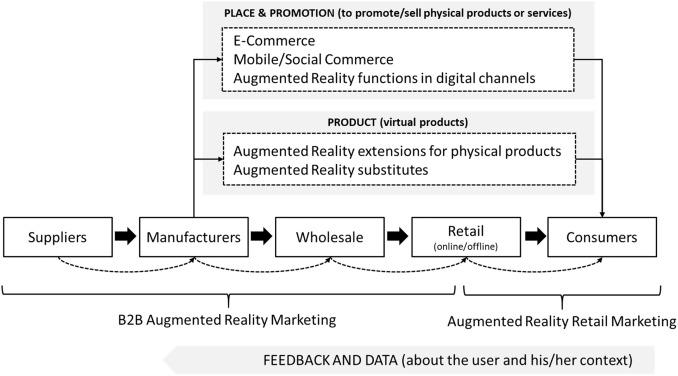Academic Performance Analyst: Key Duties, Skills, and Career Opportunities Explained
Are you passionate about combining data analysis with educational advancement? Academic Performance Analyst roles are gaining traction as educational technology reshapes universities, colleges, and schools worldwide. If you’re seeking a challenging, impactful, and future-ready career, read on to uncover everything you need to know about becoming an Academic Performance Analyst in education technology.
What Is an Academic Performance Analyst?
An Academic Performance analyst is a specialist who uses data analytics to monitor, evaluate, and enhance student achievement and institutional effectiveness in educational settings. From primary schools to top-tier universities, these professionals bridge the gap between data and actionable insights to drive student success, curriculum improvements, and strategic decision-making.
Key Duties of an Academic Performance Analyst
academic Performance Analysts play a critical role in harnessing educational data to optimize learning outcomes.Their daily responsibilities often include:
- Data Collection & Management: Gathering academic data from assessments, attendance records, learning management systems, and student feedback.
- Statistical Analysis: Utilizing statistical tools to identify trends, strengths, and areas needing improvement among students and courses.
- Reporting & Visualization: Creating easy-to-understand reports,dashboards,and presentations for teachers,administrators,and stakeholders.
- Program Evaluation: Assessing the effectiveness of academic programs,curricula,and interventions to recommend evidence-based improvements.
- Compliance Monitoring: Ensuring that academic analytics align with institutional, state, and federal regulations and standards.
- Collaboration: Working closely with educators, IT departments, and administrators to foster data-driven strategies and a culture of continuous improvement.
Essential Skills for Academic performance Analysts
Succeeding as an Academic Performance Analyst in education technology requires a combination of technical, analytical, and interpersonal skills:
- Data Analysis & Interpretation: Ability to extract meaning from complex educational datasets using statistical techniques.
- Familiarity with EdTech Tools: Proficiency with popular educational platforms (such as Power BI,Tableau,or Google Data Studio) and school management systems.
- Research Methodologies: Understanding of quantitative and qualitative research methods for evaluating academic performance.
- Interaction Skills: Presenting complex data insights in clear,actionable terms to non-technical audiences.
- Problem-Solving: Identifying gaps and offering solutions that positively affect student outcomes.
- Project Management: Managing multiple data-driven projects concurrently within educational institutions.
- Attention to Detail: Meticulously verifying data accuracy and report integrity.
- Confidentiality: Safeguarding sensitive student and institutional information in compliance with privacy laws.
Academic Performance Analyst Career Opportunities in Education Technology
The role of an Academic Performance Analyst is in high demand as universities, colleges, and schools increasingly rely on data-driven strategies. Opportunities abound in various settings:
- K-12 Schools: Supporting student achievement and district-wide initiatives by analyzing test results and classroom performance.
- Colleges & Universities: Evaluating program effectiveness and supporting accreditation processes through institutional data analysis.
- Online Learning Providers: Optimizing e-learning platforms and analyzing user engagement to support remote learners.
- government Agencies: Informing education policy and compliance by providing insights from academic performance metrics.
- Educational Consultancies: Advising schools and educational organizations on best practices in data analytics and performance improvement.
Benefits of Becoming an Academic Performance Analyst
Choosing a career as an Academic Performance Analyst in education technology comes with numerous benefits:
- High Impact: Directly influence student success, faculty development, and institutional excellence.
- In-Demand Skills: acquire valuable data analytics and reporting expertise applicable in various sectors.
- Job Security: The need for data-driven decision-making is only increasing in educational institutions.
- Professional Growth: Opportunities for advancement to senior analyst, data manager, or director roles within education or related industries.
- Interdisciplinary Work: Collaborate with diverse teams spanning teaching, administration, technology, and research.
- Personal Satisfaction: Help shape the future of education through evidence-based improvements.
Practical Tips for Aspiring Academic Performance Analysts
If you want to break into the field of academic performance analytics in education technology, follow these practical tips to boost your chances of success:
- Hone Your Analytical Skills: Take courses in statistics, data visualization, or educational measurement. Resources using platforms like Excel, SPSS, or R are helpful for building a foundation.
- Get Certified: Credentials in data analytics or education technology can enhance your employability and demonstrate specialized knowledge.
- Stay Current: Follow advancements in edtech tools, educational research, and state or federal education policies.
- Network in the Industry: attend education technology conferences, webinars, or local meetups to connect with professionals and learn about job openings.
- Build a Portfolio: Showcase sample reports, dashboards, or research projects you’ve completed, even as part of coursework or volunteer work.
- Emphasize Soft Skills: Highlight your communication, teamwork, and problem-solving abilities in your resume and during interviews.
- Seek Internships or Entry-Level Roles: Start as a research assistant or data coordinator to gain hands-on experience with academic data in real-world settings.
Frequently Asked Questions (FAQs)
Do I need a specific degree to become an Academic Performance analyst?
Most employers prefer candidates with a bachelor’s or master’s degree in education, statistics, data analytics, psychology, or related fields.Additional certifications in educational technology or analytics can be favorable.
What software or tools should I be familiar with?
Familiarity with data visualization tools (Tableau, Power BI), statistical software (SPSS, R, Python), and school management systems (like Blackboard or Canvas) is highly beneficial.
Is teaching experience required for this role?
While direct teaching experience is not mandatory, understanding classroom dynamics and curriculum design can provide valuable context for interpreting academic data.
What are the typical career advancement opportunities?
With experience, Academic Performance Analysts can progress to positions like Senior Data Analyst, Assessment Coordinator, Data Manager, or Director of Institutional research.
Conclusion
As educational institutions embrace technology and data-driven strategies, the role of Academic Performance Analyst has become more essential than ever. If you have a passion for data, a knack for problem-solving, and a desire to make a real difference in education, a career as an Academic Performance Analyst can be highly rewarding. By understanding the key duties, sharpening your skills, and staying proactive in your job search, you’ll be well on your way to securing a fulfilling position in this vital field.

